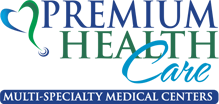March marks National Colorectal Cancer Awareness Month, a crucial time to raise awareness about the second leading cause of cancer-related deaths in the United States. With early detection, colorectal cancer is highly treatable, yet many people still fail to seek timely screenings or understand the risks. This month, we focus on educating the public on the importance of prevention, early detection, and seeking the right care. By bringing awareness to this preventable and treatable cancer, we hope to empower individuals to take control of their health.
In this blog post, we’ll delve into what colorectal cancer is, its risk factors, and why National Colorectal Cancer Awareness Month is essential in encouraging screening and promoting healthier lifestyles.


What is Colorectal Cancer?
Colorectal cancer affects the colon or rectum, parts of the large intestine. It typically begins as benign growths called polyps. Over time, some of these polyps may become cancerous. Colorectal cancer can often develop slowly, which makes early detection critical.
Symptoms may vary but can include changes in bowel habits, blood in the stool, persistent abdominal discomfort, and unexplained weight loss. However, many individuals with colorectal cancer experience no symptoms in the early stages, which is why regular screenings are so vital.
Risk Factors: Are You at Risk?
While anyone can develop colorectal cancer, certain factors increase the likelihood of developing the disease. Key risk factors include:
- Age: Colorectal cancer is most common in people over the age of 50, though rates in younger adults have been rising.
- Family History: If colorectal cancer or polyps run in your family, you may be at an increased risk.
- Genetic Conditions: Certain inherited conditions, such as Lynch syndrome or familial adenomatous polyposis (FAP), can significantly raise the risk of colorectal cancer.
- Diet and Lifestyle: A diet high in processed meats and low in fiber, physical inactivity, smoking, and excessive alcohol consumption can increase your chances of developing colorectal cancer.
- Chronic Inflammatory Diseases: Conditions like Crohn’s disease or ulcerative colitis can increase your risk of colorectal cancer.
Understanding your risk factors is the first step in taking proactive measures for prevention and early detection.
The Importance of Screening: Early Detection Saves Lives
Routine screenings for colorectal cancer can detect early changes, such as polyps or abnormal growths, before they become cancerous. Regular screenings are recommended starting at age 45, but individuals with a higher risk due to family history or genetic factors may need to start earlier.
The two most common methods for colorectal cancer screening are:
- Colonoscopy: This test allows a doctor to examine the entire colon and rectum for signs of cancer or polyps. Polyps can be removed during the procedure to prevent cancer from developing.
- Stool Tests: Non-invasive stool tests, such as the fecal immunochemical test (FIT), check for hidden blood in the stool, which can be a sign of cancer.
Screening saves lives by detecting cancer in its early stages, when treatment is most effective.
How You Can Take Action During Colorectal Cancer Awareness Month
During National Colorectal Cancer Awareness Month, here are some ways you can make a difference in your own health and in your community:
- Get Screened: If you are over 45 or have risk factors, schedule a colorectal cancer screening today. Discuss your options with your healthcare provider to choose the best screening method for you.
- Promote Awareness: Share information on social media, participate in local events, and encourage friends and family to get screened. Use the hashtag #ColorectalCancerAwareness to spread the message.
- Adopt Healthy Habits: Eating a balanced diet with plenty of fiber, staying active, and reducing alcohol and tobacco consumption can help lower your risk.
- Support Colorectal Cancer Research: Donate to organizations that fund colorectal cancer research and support patients and families affected by the disease.
Take Control of Your Health
National Colorectal Cancer Awareness Month is a time to reflect on the importance of prevention and early detection. By raising awareness about this preventable cancer, we can make a real difference in reducing its impact on individuals and families. Don’t wait for symptoms to appear—schedule a screening, understand your risks, and take proactive steps to maintain a healthy lifestyle.
At Premium Healthcare, we are committed to providing comprehensive care and guidance when it comes to cancer prevention and screening. If you’re due for a colorectal cancer screening or have concerns about your health, reach out to us today. Your health is our priority, and together, we can fight colorectal cancer.


